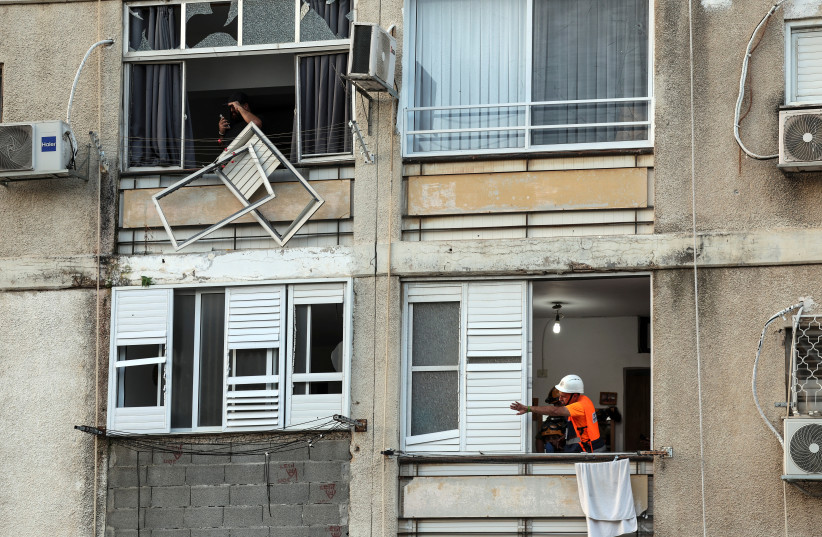There was an observed reduction in rocket fire from the Gaza Strip towards Israel during US President Joe Biden’s trip visit to Tel Aviv on Wednesday. The few that were fired were not anywhere near the president.
Yet almost immediately after Biden took off, Hamas started firing rockets again, with a barrage towards Tel Aviv and central Israel areas, including Petah Tikva, Hod Hasharon, and other locations.
Unlike the South, up North, Hezbollah continued both rocket and anti-tank missile attacks, typical of most days of the war, throughout the day yesterday – though these also aimed nowhere near Biden. Hezbollah fired an anti-tank missile at Shtula in the North, wounding four soldiers.
Later in the day, the terror group launched several missiles and attacked a number of IDF positions along the border with gunfire, with some attacks directed at Kiryat Shmona, Kibbutz Manara, and the Rosh HaNikra area. The IDF used air strikes to kill an unspecified number of Hezbollah attackers. The IDF responded with artillery fire against the sources of the attacks, and shot down four rockets.

Increasing evacuations
The Israel Democracy Institute announced on Wednesday that according to its estimations, the number of Israelis who have been evacuated from their homes reached 300,000.
The majority of these 300,000 are from the Gaza border area, with 10% coming from the North.
Hezbollah warned its adversaries on Wednesday it was “thousands of times stronger” than before. Hezbollah official Hashem Safieddine, in a speech to thousands of supporters, said Biden, Prime Minister Benjamin Netanyahu and “malicious Europeans” should be careful.
IDF Chief Spokesman Brig.-Gen. Daniel Hagari noted that Hamas’ rocket failures had risen from 5.7% to 12.7%, with close to 450 failed rockets since the war started. He cited a few instances where the terror group interfered with the attempts by Gazan Palestinians to flee.
Touching on the humanitarian issues faced on the Gaza front, IDF Chief-of-Staff (Lt.-Gen.) Herzi Halevi said: “We fight with determination, but remain human beings, which is different from the other side, who fights like animals.”
Defense Minister Yoav Gallant added: “We have no choice about this war, we will need the US’ support over the full course of the conflict. Israel is up against those who want to destroy the values of freedom and democracy.”
National Unity Party head and war cabinet minister Benny Gantz, at a funeral for Sha’ar Hanegev Regional Council Chief Ofir Liebstein, said that Israel was in a war over its home which would likely take months in the South, might involve the North, and would take years of investing to rebuild the broken communities in the South.
The estimated number of victims – as it has not been finalized – stood on Wednesday at 1,400, 199 held hostage in Gaza, and 234 unidentified individuals.
The Hamas-run Gaza Health Ministry said that 3,478 Palestinians have been killed and 12,065 wounded since October 7.
Jerusalem Post Staff and Reuters contributed to this report.
